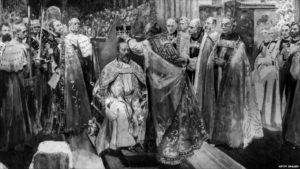 Whether or not God exists there cannot be much doubt about the existence of (to use a crude shorthand) a ‘God gene’, the innate propensity of most people to believe in gods and/or the supernatural and, at least to a degree, to base their behavior on those beliefs.
Whether or not God exists there cannot be much doubt about the existence of (to use a crude shorthand) a ‘God gene’, the innate propensity of most people to believe in gods and/or the supernatural and, at least to a degree, to base their behavior on those beliefs.
The fight of the Dawkins brigade against ‘sky fairies’ is thus, in most cases, a waste of time. What matters is not God, but the particular god that people worship. Whatever the sentimental, empty-headed or (hullo, Karen Armstrong) propagandists might claim all religions are not simply varying routes to the same ‘truth’. The difference between religions matters, and it matters a great deal. Some are benign, some are not, some leave the rest of us alone, some do not.
In that connection, it was interesting to read this in the course of an interview by Spiked Review with writer Anthony Gottlieb, the author of The Dream of Enlightenment, an account, as Spiked puts it, of “that ‘150-year burst’ of intellectual energy that begins in Northern Europe after the Thirty Years War, and stretches up to the eve of the French Revolution”:
Several of the thinkers in The Dream… are quite rightly seen as pioneers or antecedents of forms of secularism, of the idea that church and state should be kept separate. Nowadays, when we think of the separation of church and state, we tend to think of it in terms of the First Amendment, where Americans hold that there should be no state religion.
But for the pioneers of secularism, church and state are not so easily parsed. Take Thomas Hobbes (1588-1679) and Baruch Spinoza (1632-1677), for example. They’ve both been characterised as being in favour of the separation of church and state, of getting rid of a state religion. Yet, in fact, both believed that it was important to have a state religion. And that’s because they, like many of their intellectual brothers in arms, were concerned not with getting rid of state religion but with weakening the power of the priests, the power of institutional religion. They wanted to take away the church’s power and give it instead to the state.
That’s because, as they saw it, the best way of ensuring that religion didn’t lead to all sorts of trouble was both to police it, and to make sure that the state religion was peaceful, non-disruptive, and not run by these mad priests. So Hobbes and Spinoza ended up advocating state religion, rather than opposing it….
There’s something to that, especially if that state religion is mild, unassuming, tolerant– light on superstition and with a proper sense of its place: At its best the Church of England comes to mind.
